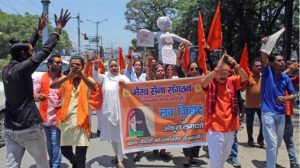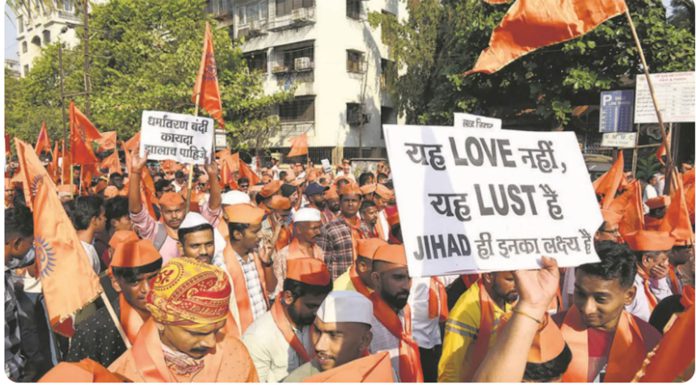Discrimination against interfaith couples deepens in Uttarakhand as hotels refuse rooms over “love jihad” fears. Dehradun, Rishikesh, and Haridwar face backlash for rising religious profiling and tourist concern.
From Dehradun to Haridwar, discrimination against Hindu–Muslim couples is reshaping Uttarakhand’s hotel culture, blurring the line between vigilance and prejudice.
By Qalam Times News Network
Dateline: Dehradun | 20 October 2025
Dehradun: The word discrimination has taken on a chilling new meaning in Uttarakhand’s hotel corridors. Across key tourist hubs—Dehradun, Rishikesh, and Haridwar—interfaith couples, especially Hindu–Muslim pairs, are being denied rooms out of fear of raids or backlash from so-called “love jihad” vigilante groups.
Owners admit that discrimination has quietly crept into their business practices. Many now demand identity proofs that reveal religion, or even ask couples to prove marriage, just to avoid being targeted by fringe groups claiming to protect “Hindu culture.”
According to The Print’s investigation, several hoteliers said they have faced threats from right-wing organisations that monitor properties and intimidate staff for allowing interfaith guests. “We don’t want trouble,” one manager confessed. “Even if the couple shows valid IDs, we sometimes have to say no. A single raid could ruin our business.”

Tourists report the same story: bookings cancelled, IDs scrutinised, and couples turned away without refund. Some even say they were told to find a “hotel for people of your kind.” For many, this isn’t just discrimination—it’s humiliation backed by social fear.
Discrimination deepens in Uttarakhand’s hospitality sector
Beyond the human cost, the trend is denting Uttarakhand’s tourism economy, which still hasn’t fully recovered from the pandemic slump. Industry experts warn that bias in hospitality damages not only the state’s brand but also its promise of peace and spirituality that draws millions of visitors each year.
Discrimination grows as hotels deny rooms to interfaith couples
Legal experts argue the practice violates Article 15 of the Indian Constitution, which forbids discrimination based on religion in public places, including hotels and guest houses. Yet, in practice, vigilante influence seems to outweigh constitutional guarantees.
Local authorities have stayed largely silent. While the police insist they have issued no such directives, human rights activists argue that passive inaction only emboldens those spreading communal paranoia. “This pattern of selective exclusion,” says one activist, “turns religious profiling into an accepted norm. That’s far more dangerous than one night’s lost booking.”
As these patterns spread, they intersect with a broader rise in anti-Muslim sentiment across Uttarakhand. From mob attacks and shop boycotts to mosque demolitions, reports show that such discrimination is no longer limited to isolated incidents—it’s becoming systemic.
If unaddressed, the fear of “love jihad” will continue to erode both tourism and trust. And as one hotelier quietly put it, “The day we stop seeing guests as people, not as religions, we stop being a welcoming state.”







